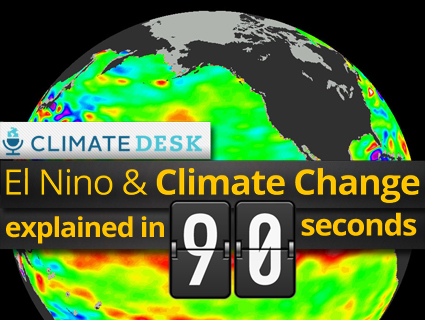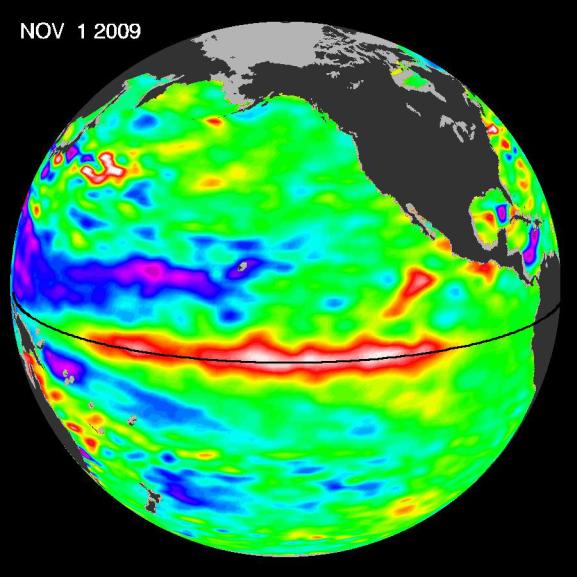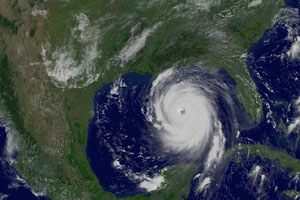
James West/NASA/Climate Desk
Imagine this is your office: a tropical island skirted by coral-packed azure waters, somewhere near the equator between Hawaii and Tahiti. Your job involves a lot of swimming. Tough, huh? “My field research is the best part of my job,” says Kim Cobb, Associate Professor of Climate Change at Georgia Institute of Technology. “It’s probably the reason I have stuck with corals for the last 15 years.”
Stuck with, and collected and sampled. For the past seven years, Cobb and her lab team have been recontructing the history of El Niño events across several millenia by taking core samples from corals in the Pacific. That process has uncovered reams of fresh climate data. And it’s within this new, longer baseline of temperatures from the tropical Pacific that Cobb spotted something surprising: “The 20th century is significantly, statistically stronger in its El Niño Southern Oscillation activity than this long, baseline average,” Cobb says. El Niño events have gotten worse.
That led Cobb to wonder: Is man-made climate change, and the level of carbon in the atmosphere, shifting in El Niño events along with it? Or should we chalk it up to coincidence? “We need a lot more data,” Cobb says. But Cobb’s 7000-year baseline study should push researchers in the right direction to discover more connections between Earth’s complex climate systems, and the role man-made climate change is playing.
Cobb’s results have been published in the latest edition of Science.













